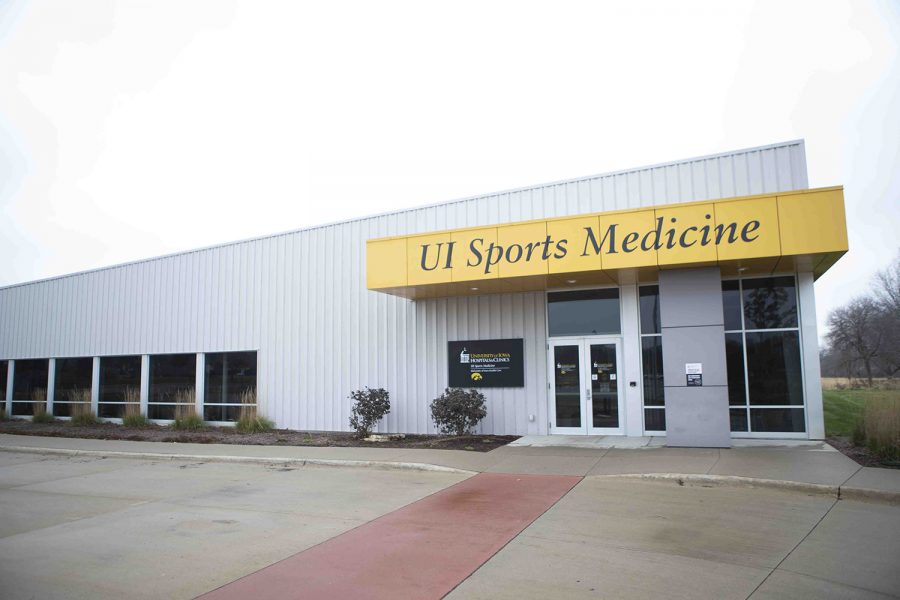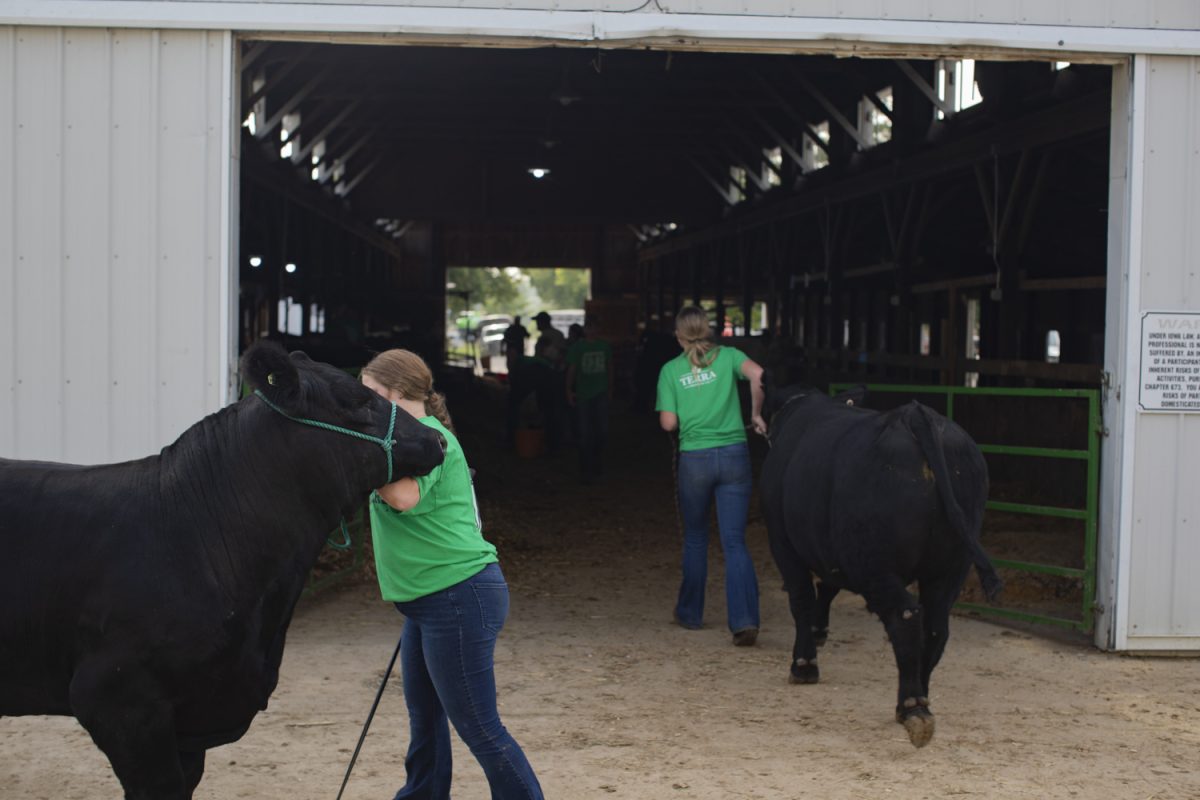As high school athletes continue to play in Friday night football games, volleyball games, and run in cross country meets, University of Iowa Hospital and Clinics Sports Medicine is hosting a walk-in clinic to assist athletes who have suffered an injury.
Since the clinic started on Aug. 26, Matt Bollier, a UIHC orthopedic surgeon in sports medicine, said that it has been busy and full of athletes every Saturday morning.
The clinic is being held at the University of Iowa Health Care-Iowa River Landing, located at 105 E. Ninth St., every Saturday from 8 a.m. to 11 a.m. until Oct. 28.
The clinic is for athletes who are 25 years old or younger and is primarily targeted at high school student-athletes.
When athletes come into the clinic, they are evaluated by one of the UI Sports Medicine physicians who help determine the scope of the injury.
Bollier said that Friday nights tend to wield higher injury because of high school football games, and other sporting events in the community.
Bollier said that the majority of athletes the clinic sees are from football as there are a higher number of injuries in the sport. These injuries tend to be a combination of knee, shoulder, hip, ankle, and, in some cases, concussion.
“No one wants to sit in the emergency room for several hours for things that may not be real serious, or they just want an x-ray to rule out something more serious like a fracture,” Bollier said.
At the clinic, physicians like Bollier have access to X-ray machines and the ability to order an MRI if needed.
An athletic trainer is also present alongside the physicians.
Johnnie James, a UI Sports Medicine trainer and athletic trainer at Regina High School in Iowa City, said the clinic has given athletes, their coaches, and their families the answers they need in a timely fashion.
“Everyone wants an immediate answer so having the ability to have a physician do imaging on the Saturday morning right after a game is very important,” James said.
Additionally, early imaging is critical especially when it comes to musculoskeletal injuries, James said. Musculoskeletal injuries are injuries that affect ligaments, joints, bones, and muscles.
As an athletic trainer at Regina, James said that though having a trainer on the sidelines during Friday night high school games is important, the follow-up is equally as important.
“You need to see what kind of injury you are dealing with and ultimately how long the athlete is going to be out,” James said.
The clinic is seeing patients from schools in Iowa City and as far as Williamsburg and Mount Pleasant, increasing the number of athletes in attendance. UI Sports Medicine has been in partnership with Iowa City School District and the Cedar Rapids School District as well.
“It gives athletes and parents more access, and gets things taken care of so a plan can be made,” James said.
Bollier also emphasized the importance of the clinic not requiring an appointment to make it more convenient for athletes who want to get to practice again on Monday depending on the extent of the injury.
“Being able to get an X-ray Saturday morning is a very valuable thing for a lot of high schoolers, parents, and coaches in the community as it helps them know what they are dealing with,” Bollier said.
The clinic has also started opening the clinic to college athletes as well. Bollier said that these slots are typically appointment only as the worry is that if they open it up and receive an influx of patients at the same time it will become harder to see all of them.
“We don’t always have all the resources to take care of all of them, especially with just one doctor and one athletic trainer,” Bollier said.
Typically, Bollier said, the clinic normally sees 10-12 patients, but 25 athletes are the goal every Saturday.
The clinic has begun to open to recreational sports teams at the university such as club rugby, club soccer, and many others, who have athletic injuries, James said.
RELATED: UI Sports Medicine celebrates 10 years of caring for athletes across Iowa
Bollier emphasized the importance of the clinic for the community as many high schools, especially in rural Iowa, do not always have athletic trainers on the sidelines.
“Their parents don’t know what to do or even where to go to get seen so having something they can take their son or daughter to be evaluated is very valuable,” Bollier said.
James said that the goal of the Saturday morning clinic is to provide accessibility and convenience for local communities, sports teams, and athletes.
“The nature of sports is to want answers right away and with this service, athletes and their family members are going to get answers and get the ball rolling on figuring out how to get back on the field being the ultimate goal,” James said.









